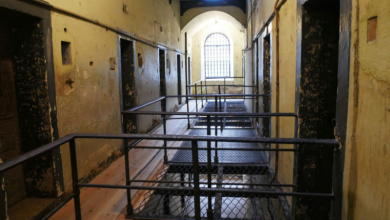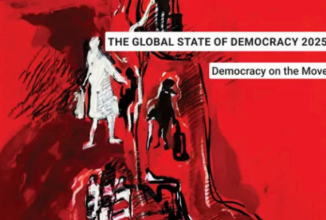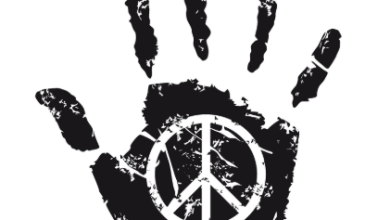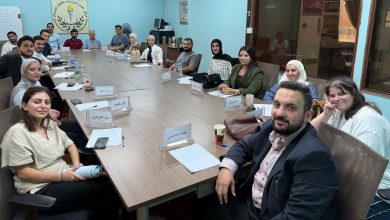Tunisia’s expulsion of Sub-Saharan-African Migrants to remote border areas despite recently signed MoU with the EU
By Felix Becker

According to several videos provided to Al Jazeera by NGOs and Libyan border agencies, Tunisian security services expelled Sub-Saharan men, women, and children to a militarized buffer zone at the Tunisian-Libyan border, from which they were not able to enter Libya nor return to Tunisia, forcing them at gunpoint to walk into the desert without any food and water.
Human Rights Watch interviewed five people who were among those expelled. According to them, an estimated number between 500 and 700 people were expelled to the border area since the 2nd of July. The people expelled were from various African nationalities, among them children and pregnant women. At least six people were registered asylum seekers from the UNHCR, while two were identified as students in Tunisia.
“We are at the Tunisia-Libya border, at the seaside,” said an Ivorian asylum seeker on July 4. “We were beaten [by Tunisian security forces].…We have many injured people here.…We have children who haven’t eaten for days … forced to drink sea water. We have a [Guinean] pregnant woman who went into labor … she died this morning … the baby died too.”
The port city of Sfax is the second biggest city in Tunisia, about 300 km southeast of the capital Tunis. In the city, many migrants from the whole continent arrive before setting off to Europe with boats.
Tensions have been high in the city for months as Tunisian residents campaigned against the African foreigners, escalating in attacks against Black Africans and clashes with Tunisians. Racially motivated attacks on the vulnerable population have been increasingly reported, until on the 4th of July, officials announced the death of Nizar Amri, a local 41-year-old man, who allegedly was involved in the attacks on the refugees and migrants.
Observers claim that as Tunisia’s economy tanked, racial sentiment increased despite the long-established connection between migration and the country’s ailing economy.
“They are taking our jobs, they are starting problems, starting violent actions. This is all happening because of the Sub-Saharans,” an 18-year-old in Sfax told Al Jazeera.
Amri’s death and social media footage of his bleeding body lead to another wave of intense violence in the city.
Since then, Tunisia’s security forces have been active in seizing Black men, women and children who lack proper documents from migration hotspots and expelling them to the remote border areas.
In the hours and days following Amri’s death, hundreds of refugees were trying to escape the city.
According to Salsabil Chellali, a researcher and director at Human Rights Watch, “the Tunisian authorities have contributed to fuelling hatred against Sub-Saharan migrants, and have deliberately endangered hundreds by abandoning them in the desert at the border with Libya.”
Various interviewees said they were arbitrarily arrested and detained, in Tunis, Ariana and Sfax, where police profiled them based on their skin color. According to different witnesses from the migrants who were expelled, some were robbed, abused, beaten, tortured and even raped.
The question of the European Union’s role
The sea crossings from Northern African countries, often on overcrowded, old and unsafe boats, have led to terrible drownings, like in the beginning of June, where a boat, carrying hundreds of migrants from Libya sank close to the Greek border.
On the 16th of July, Tunisia and the European Union signed a “strategic partnership” deal, a Memorandum of Understanding (MoU), to combat human trafficking and tightening borders due to a significant increase in departures of boats from the North African nation. Tunisia will receive 1 billion euros to stabilize its economy and to deal with the migration crisis.
Mounir Satouri, a French Member of the European Parliament told Aljazeera: “It is EU money on a silver platter for a president [Saied] who has shifted Tunisia’s nascent democracy to an autocracy.” According to him, “the EU is externalizing its migration management to Tunisia, even though Tunisian authorities are not respecting migrants’ rights. The signaling could not be worse”.
Lessons from past EU-agreements with Libya or Turkey for example don’t seem to have been applied in this MoU.
“The signing of this agreement without human rights conditions and safeguards, without democratic scrutiny or involvement of civil society, at the same time as evidence of abuses in Tunisia was mounting, and with no public condemnation of these abuses during leaders’ visit to Tunisia, shows an appalling disregard for human rights,” Sundberg Diez, a European Migration expert at the European Commission said.
The EU’s push for a migration agreement is a reflection of a larger shift in the EU’s asylum policy. Today, EU member states want to block access to asylum seekers through fast-track border procedures and externalizing protection responsibilities, as this is increasingly perceived as its “Achilles heel” in an expanding geopolitical battle. This larger picture includes contentious agreements with third countries, many of which are characterized by an alarming human rights situation.
The ACHRS condemns the severe human rights violations conducted by the Tunisian authorities against the vulnerable Sub-Saharan-African migrants in Tunisia and calls upon a humane treatment of the migrants according to values of respect for human dignity and rights.





![Catholic clergy take part in a procession during Easter Mass at the Church of the Holy Sepulchre in Jerusalem's Old City [File: Ahikam Seri/Reuters] in https://www.aljazeera.com/podcasts/2024/3/29/the-take-the-meaning-of-easter-in-palestine](https://achrs.org/english/wp-content/uploads/2024/04/Easter-Palestine-220x150.webp)